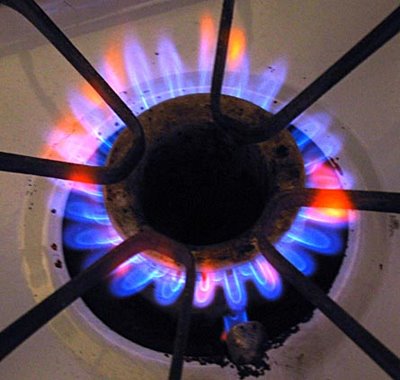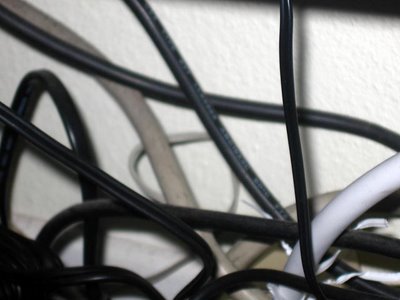
I was thinking the other day about entropy, while I made a peanut butter sandwich. Cosmologists argue that eventually everything in the universe will settle out to being about the same temperature; all matter will have long since dissolved into energy. This is I think at least after the next presidential elections; the effect on global warming has not been determined.

The funny thing is, this forecast for the universe really puts us humans in a bit of a backwater. Structures are supposed to be breaking down into chaos; the organization of the universe is supposed to be getting simpler. And yet here we are a complex organism evolved from simple life forms, moving in completely the wrong direction. Far from disappearing in a cloud of 10-30 degrees Kelvin, our solar system differentiated itself as it cooled off, with discrete planets and a sun at the center. Very puzzling.

In most science, you find large systems and small systems mimicking each other: Atoms whirl around a nucleus much as planets whirl around a star; clouds of water vapor in the air billow much as paint billows when you pour it into a pool. The legendary Greek gods established a home on Olympus much as the legendary 1927 Yankees made a goal of reaching what they called "home plate." So if the universe is getting simpler and more chaotic, why are we getting more complex and differentiated?

A friend told me I was probably overestimating evolution as a force for differentiation and increased complexity. "If you had spent anything other than the briefest amount of time with some of the men I've met in my life," she said, "your claim of the high rate of evolution we as humans have achieved might have to be reevaluated."
I had salad with my sandwich. Also homemade.
1 comment:
Local decreases in entropy are always offset by a broader increase in entropy.
Post a Comment